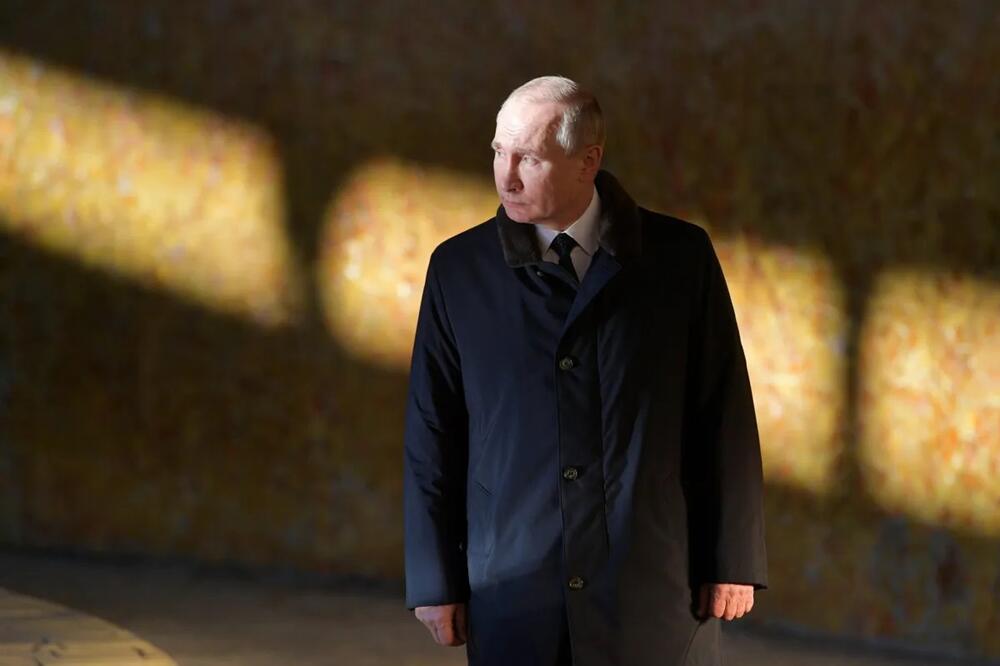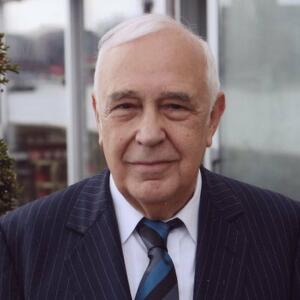The Russian writer Petar Chadayev said of his country: "We have never progressed together with other people; we are not connected with any of the great human families; we belong neither to the West nor to the East, and we do not possess the traditions of either. Positioned, as we were, outside of time, we were not influenced by the universal education of the human race".
That was in 1829.
"A riddle, shrouded in mystery, within an enigma," as Winston Churchill described Russia more than a century later, is not even close to being solved today.
Philosopher John Gray recently wrote that Russian President Vladimir Putin is “the face of a world that the modern Western mind does not understand. In this world, war remains a permanent part of the human experience; deadly battles for territory and resources can break out at any moment; people kill and die because of mystical visions".
That is why Western analysts and liberal Russians are astonished by Putin's so-called "special military operation" in Ukraine.
Neither an excellent chess player, nor a deranged ruler
Personality-based explanations for Putin's actions are the easiest and simplest. Putin behaves neither like an excellent chess player who makes every move carefully, nor like a deranged ruler.
Putin, rather, has a distorted or at least one-sided view of Russian history and what constitutes a special Russian virtue. But that does not explain the widespread popular and intellectual support in Russia for this justification narrative regarding Ukraine. We are all, to some extent, prisoners of our national myths. The thing is that Russian mythology is at odds with the "universal education of the human race".
We expect Russia to behave more or less like a modern or even postmodern European nation-state, but we forget that Russia has missed three key ingredients of European modernization. First of all, as Yuri Senokosov wrote, Russia never went through the Reformation or had its own Enlightenment. This is because, according to Senokosov, "serfdom was abolished only in 1861, and the system of Russian autocracy fell apart only in 1917 […] Then it was quickly restored". As a result, Russia never experienced the period of bourgeois civilization that established the outlines of a constitutional state in Europe.
Then, Russia has always been an empire, never a nation-state. Autocracy is its natural form of government. For its current tsar, the collapse of the Soviet Union in 1991 was a violation of Russian history.
Liberal capitalism
The third missing ingredient, related to the absence of the first two, is liberal capitalism, which Russia experienced briefly and in a limited form. Marx insisted that the capitalist phase of economic development must precede socialism, because any attempt to build an industrial economy on the archaic soil of peasant primitivism inevitably leads to despotism.
Lenin's revolutionary formula of "Soviet power plus electrification of the entire country" came down to this. Lenin, a brilliant opportunist, followed in the tradition of the great reforming emperors who tried to Westernize Russian society from the top. Peter the Great demanded that Russians shave their beards and told his boyars, “Don't eat like pigs; do not clean your teeth with a knife; don't hold the bread to your chest while cutting it".
In the 19th century, the Russian relationship with Europe took on a new dimension with the idea of a new man - a Western type inextricably linked to the philosophy of the Enlightenment and enthusiastic about science, positivism and rationality. He appears as Stoltz in Ivan Goncharova's novel Oblomov from 1859. In Ivan Turgenev's Fathers and Sons from 1862, he is the son of the nihilist Bazarov, who is a champion of science and fights against the family's irrational traditions. Nikolai Chernyshevsky's 1863 novel What to Do, which strongly influenced Lenin, envisions a society of glass and steel built on scientific reason.
Because of their shallow roots in Russian culture, these futuristic projections sparked a peasant literary revolt. Fyodor Dostoyevsky's Notes from the Underground, published in 1864, not only became canonical texts of Christian Slavophilia, but also raised deep questions about modernity itself.
The Bolsheviks made the biggest collective attempt to bring the new man out of literature and into the world. They, like Peter the Great, understood that it is necessary to transform people within society in order to transform society. They initiated joint efforts, with the participation of avant-garde artists of the time, to modernize people's way of thinking and nurture their revolutionary consciousness. Russians will become scientifically and collectively oriented new people who will help to build a communist utopia.
Dreams of a 'new man'
This was perhaps the biggest failure of all. With Stalin deeming socialism achieved in 1936, and state-commissioned socialist literature and art elevating mysticism above science, Soviet dreams of a new man remained just that. The retreat from science and logic survived the collapse of the Soviet Union and is now an animating tendency of Putin's rule. Its faith-based mythology, unusual symbiotic relationship with the Patriarch of Moscow Kirill, distortion of history and denial of facts, underline the extent to which Russia is retreating from contemporary Europe.
In his 2003 book The Breaking of Nations, former European diplomat Robert Cooper opined that Russia's future is still open. The signing of the Treaty on Conventional Armed Forces in Europe and later Russian moves to join NATO indicated that "postmodern elements are trying to get out." Whether this rapprochement was thwarted by Western arrogance or Russian incompatibility will be debated for a long time. By 2004, Putin had rejected most liberalizing tendencies and began to embrace traditionalism. In Cooper's classification, Russia is a modern pre-modern state.
After the Soviet Union's invasion of Czechoslovakia in 1968, Czech writer Milan Kundera refused to adapt Fyodor Dostoyevsky's The Idiot. "Dostoevsky's universe, which consists of overblown gestures, murky depths and aggressive sentimentality, rejected me," said Kundera.
In these murky depths, behind the rational facade, we can glimpse Putin's war.
The author is a member of the British House of Lords and Emeritus Professor of Political Economy at the University of Warwick
(Project Syndicate; balkans.aljazeera.net)
Bonus video:





